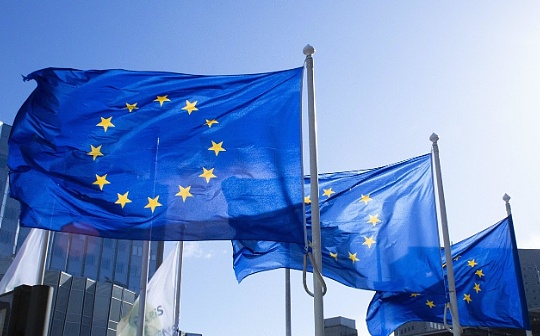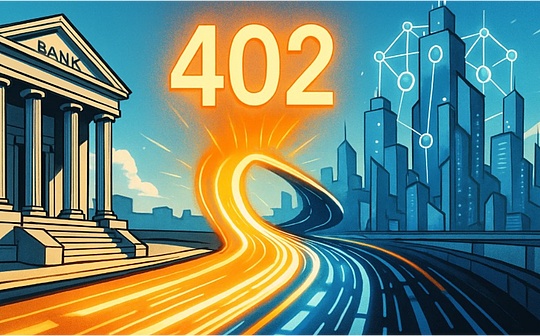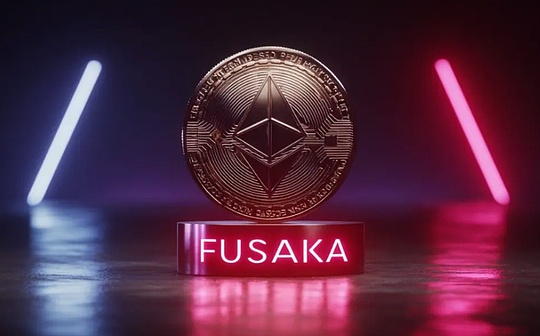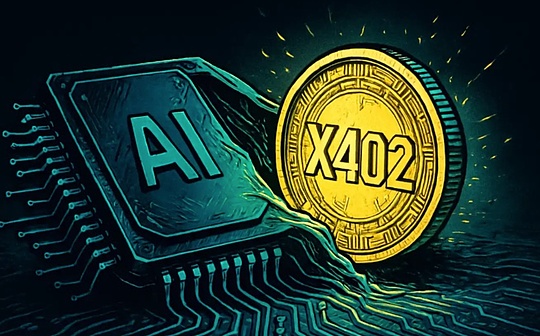
Source: DLNEWS; Compilation: White Water, Bitchain Vision Realm
-
The election of 720 new members may mean that the EU’s careful encryption system will change.
-
Important encryption legislation is waiting for new members of the European Parliament.
-
With the implementation of new laws in the industry, the focus may turn to blockchain technology.
EU elections will begin on Thursday.For cryptocurrencies, this means that key legislators may lose their seats in the parliamentary parliament composed of new 720 members, and the industry’s policy agenda will enter a turbulent period.
Although cryptocurrencies have become a problem in the US presidential election, it is still an unpopular topic in the European campaign.
Nevertheless, in the past five years, the European Union has used a comprehensive system called MICA to respond to the challenges of crypto assets in an orderly manner.At the same time, European leaders have also established a small -scale but symbolic institution to supervise the launch of blockchain infrastructure.
Subtle balance
But before the dust settled this weekend, how the new parliament replaced the work of the last parliament was still an unknown problem.Cryptocurrency experts are paying close attention to how the legislators handle the subtle balance between supervision and innovation.
“People seem to realize that although supervision is very important and can play a role, it may also go too far and be regarded as a hindrance,” pointed out Mark Foster, EU policy leader of the Cryptocurrency Innovation Commission.
The cryptocurrency industry will follow who will play several key roles in the new council.
For example, the Parliament Economic and Monetary Affairs Commission has played a vital role in revising and formulating encrypted legislation in the past five years.
It formulates the rules of MICA (encrypted asset market supervision) and to prevent money laundering.
Each parliament committee has a chairman, responsible for coordinating the work of dozens of legislator groups focusing on specific fields.
The chairman also exerts a subtle influence in the so -called three -party negotiations. The three parties negotiations are the last and most detailed parts of the law that drafted the law between EU institutions.
The Citizen Free Council, the judicial and internal affairs committee, and the internal market and consumer protection committees have affected the legislation of encryption.
Council is the key
Other key positions are coordinators of the political parties of the parliament, which covers the political spectrum.
Coordinators allocate legislative reports in the group and decide who will lead the bill to negotiate.
Although experts are expected to change to the extreme right -wing in the upcoming election, the European Right -wing European People’s Party will still occupy the largest share in polls.
The scale of the left -wing Socialist Party and the Democratic Party ranks second. The European Parliament of the group has always challenged the advocates of the encryption industry.
Undead legal draft case
Before the election, there were some unfinished draft laws.These bills need a reporter, the chief negotiating representative designated by the parliament.
If Stefan Berger, a German European parliament, cannot come back to complete this process, then digital euro (a digital currency operated by the European Central Bank) also needs a new parliamentary leader.
Other payment services and financial data legislation also need a new member of the European Parliament to take the lead.
The “Payment Service Regulations” is essential for whether the issuer of determining the statutory stable currency or electronic currency tokens needs to comply with a more heavy measures proposed in MICA.
Moreover, the newly formed legislators in the committee can re -draft the work made by the previous Legislative Council according to their preferences.
DEFI and tokens
The European Commission will report the progress of decentralized finance and NFT, and evaluate any risks that the ecosystem may cause to consumers and the market.
The MICA framework has largely excluded these two characteristics of the encryption industry and focused on service providers.On the contrary, the committee will decide whether it needs additional legislation based on its survey results.
The DEFI and NFT reports will be released in December, including the views of the European financial market and bank regulatory agencies.
But Defi’s potential policy action may be blocked by another trend of devouring the industry: tokenization.
“If we have a large bank and market infrastructure to enter securities, debt instruments and deposits, we need a correct framework,” Foster said.
European encryption legislation
Mica covers the permission requirements of stable currency issuers and cryptocurrency companies to protect the market and consumers and will start in stages from the end of June.
According to the “Digital Operations Elastic Act”, financial institutions (including cryptocurrency service providers) also need to comply with the IT security requirements that have been strengthened from 2025.
The DLT pilot project is another project in the Digital Finance Plan of the European Commission.It aims to allow market participants to try token -based financial instruments, but it has not achieved much success.
In addition, Europe has formulated anti -money laundering rules focusing on cryptocurrencies to collect data from the transaction sender and recipients in accordance with the “Regulations on the Global Transfer”.
A separate anti -money laundering regulation also covers encryption services because these entities must comply with the EU’s latest system for the private sector.
Now, high -level officials have called for slow supervision and providing opportunities for technology and financial departments to implement a series of new laws targeting them.
Blockchain, not cryptocurrency
Foster said: “In the next five years, that is, this year’s legislative cycle, we will pay more attention to DLT and its underlying technology.”
This may cover decentralization, digital identity and wallet, or transforming financial market infrastructure, providing instant settlement and other functions to eliminate intermediary agencies.
In addition, these legislators also need to approve the next person in charge of the European Commission of the European Executive Agency.
EU budget
The next European Commission leader will be nominated by EU member states and will be elected by the European Parliament.This process will be carried out after summer.
The new European Commission chairman (is likely that the current chairman Ulsula von Delain) and members of the leadership financial and technical departments will be responsible for any new legislation that may affect cryptocurrencies or blockchains.
The committee also plays an important role in allocating the EU budget to achieve its digital or sustainable long -term goals.
This includes projects such as supporting the European government’s blockchain infrastructure (called EUROPEUM).
It also includes updating Internet infrastructure and digital services or other measures of enterprises.
“This is an important factor for citizens to use Web 3 and encryption products and services,” Foster said.








